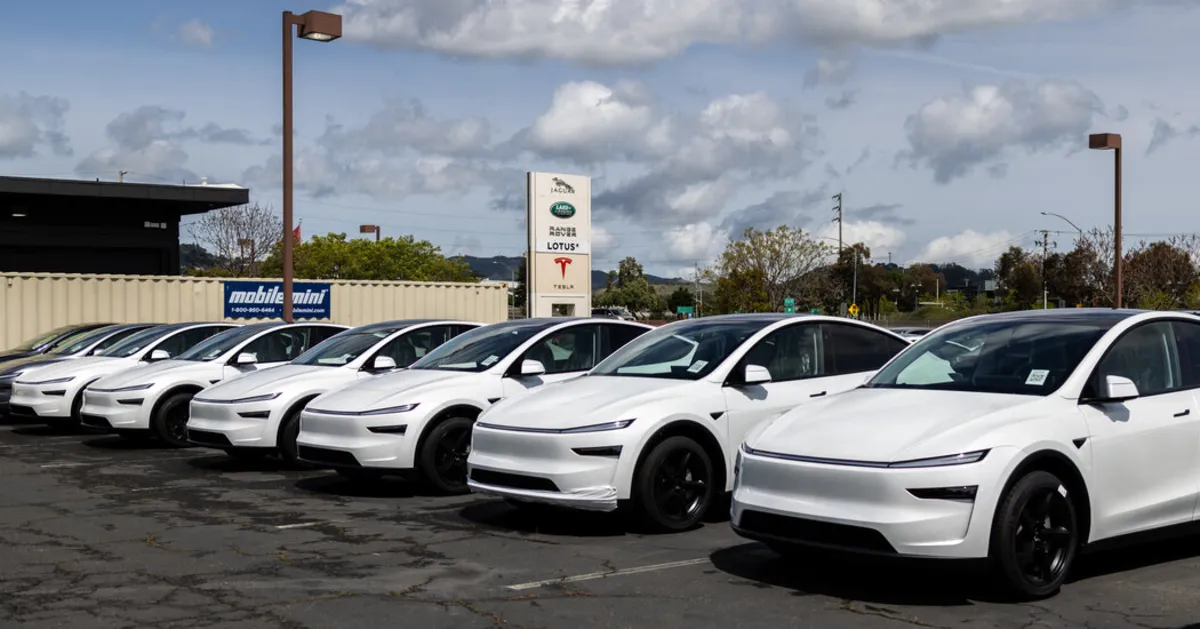
The decision by Dan McGrath and his wife to lease a Hyundai Ioniq 5 sport-utility vehicle in August was influenced significantly by the impending expiration of a $7,500 federal tax credit for new electric vehicle purchases. “We knew that with the Sept. 30 deadline, it was now or never, so we did it,” stated Mr. McGrath, a 38-year-old transportation planner based in Cincinnati. “The car became much more affordable with the tax credit.” This sentiment is echoed by thousands of consumers nationwide, resulting in a notable surge in electric car sales.
In fact, sales of electric vehicles (EVs) jumped by 18 percent in August, totaling 146,332 vehicles. Analysts anticipate that this upward trend will continue into September. However, the upcoming expiration of the tax credit is expected to significantly dampen sales in the latter part of the year. Projections indicate that electric vehicle sales may see a sharp decline in the final three months of 2023 and could remain sluggish for an extended period.
“Next year could be a pretty dreadful year for E.V.s in this country,” warned Adam Jonas, an auto industry analyst at Morgan Stanley, during a recent conference. In response to this shifting landscape, automakers are adjusting their strategies by slowing the production of battery-powered cars, delaying new model launches, and reallocating resources toward gasoline and hybrid vehicles. This marks a significant contrast to the optimistic outlook prevalent just a few years ago when many manufacturers forecasted explosive growth in the electric vehicle sector.
The current downturn in electric vehicle sales can be attributed to a series of policy changes initiated by former President Trump and supported by Republican lawmakers, who have historically opposed subsidies for electric vehicles. Trump has often dismissed climate change as a “hoax” and criticized the climate policies initiated by President Biden as a “green new scam.” Additionally, Republican legislators have suspended penalties on automakers failing to meet federal fuel economy standards, while Trump has increased tariffs on imported vehicles. These shifts have resulted in reduced pressure for manufacturers to ramp up electric vehicle production.
As a consequence of lower electric vehicle sales, many traditional automakers are redirecting their efforts towards producing gasoline vehicles and hybrids, which utilize both internal combustion engines and electric motors. Paul Jacobson, the Chief Financial Officer of General Motors, noted a strategic pivot within the company. “The reality is we’re probably going to scale up much slower now over the next few years,” he stated at an investment conference. “But we’re in a position now to focus on structural cost reductions within E.V.s.”
In line with this shift, GM has temporarily idled a factory in Hamtramck, Michigan, responsible for producing several electric models. Furthermore, production at another facility in Tennessee is set to be paused for a week in each of the next two months and entirely throughout December. When operations resume in January, the plant will run only one shift instead of two. Other manufacturers are making similar adjustments; Honda has canceled plans for an electric Acura, Stellantis has scrapped a battery-powered Ram pickup, and Nissan will no longer import its Ariya electric SUV from Japan.
While established automakers can adapt to a shrinking market for electric vehicles, newer companies like Tesla and Rivian face greater challenges due to their lack of gas-powered models. These companies are also losing a crucial revenue stream from selling emission credits to older automakers. For years, manufacturers such as GM and Stellantis purchased credits from electric vehicle companies to meet federal clean air regulations, generating significant profits for Tesla. In the second quarter alone, Tesla earned $439 million from regulatory credit sales, contributing to its overall quarterly profit of $1.2 billion.
Despite the current downturn, industry executives maintain a belief that electric vehicle sales will eventually rebound, especially if automakers can introduce models priced around $30,000. Analysts from J.D. Power highlighted that electric vehicle sales experienced a significant drop in countries like Germany and Canada after subsidies were eliminated but eventually began to grow again. A similar recovery could be anticipated in the United States.
“These are cars that people like,” remarked Albert Gore III, Executive Director of the Zero Emission Transportation Association. “They’re ultramodern, and they’re fun to drive. Some manufacturers have decided to scale back their pace, but I think those who continue to bring compelling, affordable E.V.s in high volume will be richly rewarded.”